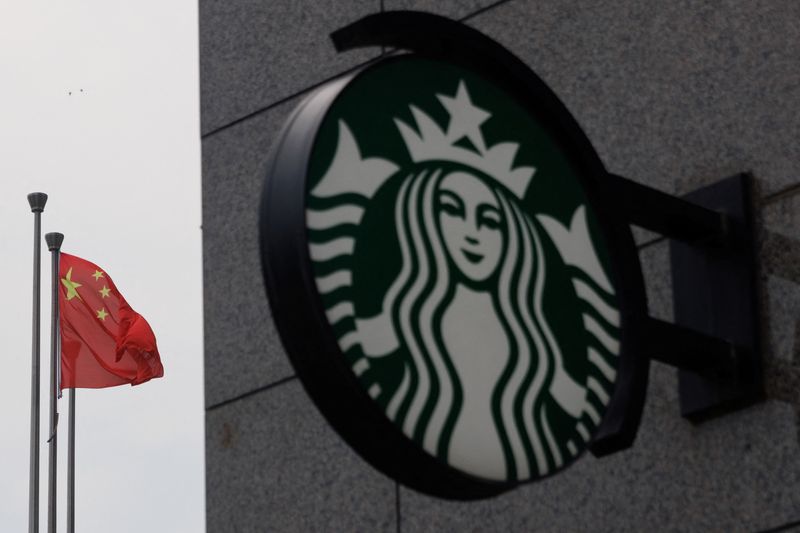Starbucks efficiency gains boost profit despite sales pressure in China, U.S
2024.07.30 16:50
By Juveria Tabassum and Waylon Cunningham
(Reuters) -Starbucks reported a bigger-than-expected drop in third-quarter comparable sales on Tuesday, but investors focused on an improvement in in-store efficiencies that helped the company meet Wall Street expectations for quarterly profit.
The coffee chain, like its other U.S. peers, has rolled out promotions to bring back to stores consumers looking to cook at home due to sticky inflation, while it has offered cheaper options in a weak macroeconomic environment in China.
The company’s global comparable sales fell 3% in the quarter, compared with a 2.35% decline expected on average by analysts, according to LSEG data.
Profit of 93 cents per share was in line with estimates. The company’s shares, down 22% this year, were up nearly 2% in trading after the bell.
“Quite possibly, investors are viewing this as not as bad as was feared potentially. We’re kind of impressed that they were able to open 526 new stores in the quarter,” said Greg Halter, director of research at Carnegie Investment Counsel.
Starbucks (NASDAQ:)’ operating margin fell 70 basis points in the quarter. The fall was smaller sequentially, and was helped by better operational efficiencies such as the introduction of new equipment to increase the pace of service at its stores.
“Our efficiency efforts, which are tracking ahead of expectations, partially offset investments associated with the cautious consumer environment,” Chief Financial Officer Rachel Ruggeri said in a statement.
International same-store sales fell 7% in the third quarter, compared with expectations of a 4.3% drop. That included a drop of 14% in China, following an 11% drop in the second quarter.
Fast-food giants such as McDonald’s (NYSE:) and Domino’s also reported weakness in some international markets this quarter. McDonald’s said sales in its international markets fell on the back of slower demand in France.

Starbucks is also facing weak spending in some markets in the Middle East as a result of boycotts related to the war in Gaza.
Total net revenue fell 0.6% to $9.11 billion, compared with market expectations of $9.24 billion.








